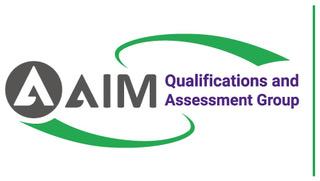Mediation And Community Support's training and development programmes are Quality Assured by AIM Qualifications and Assessment Group.
Each course offers a high standard of teaching and learning and each successful learner will receive an AIM Qualifications and Assessment Group Quality Endorsed certificate of achievement.
Our training is highly flexible, efficient and a time effective way to get the best return on your investment in personal and staff development.
The following list of courses can be delivered in-house for groups of people in your organisation. We can also work with you to design, develop and deliver training specific to the challenges you face.
To discuss your current need, or to explore how we can help you, please contact our training co-ordinator here.
‘This course has affected how I deal with conflict in my own life.’ (Local Resident)
‘I CAME HOME AT THE END OF THE DAY FEELING (AGAIN!) THAT I HAD LEARNED AN ENORMOUS AMOUNT. THANK YOU.’ (DEGREE STUDENT)
'WHAT AN EYE OPENER! I WON’T SHY AWAY FROM DIFFICULT SITUATIONS THE WAY I USED TO.’ (LOCAL RESIDENT)
Our training programmes
Understanding Conflict (1 day basic, or 2 day in-depth)
An introductory course designed to provide some tools and skills to handle everyday conflict more constructively. The course will provide a practical understanding of the dynamics of everyday conflict; examine personal behaviour and alternative conflict styles; develop skills to handle conflict better and create practical steps to address everyday conflict.
Difficult Conversations (1 day)
Difficult conversations happen all the time, unwanted situations can arise suddenly and demand a response, the usual reaction is either to tackle the subject or avoid it. Research has demonstrated that, in the workplace, difficult situations are avoided more often than they are addressed or resolved.
This course provides practical steps that can be used to manage difficult conversations and achieve positive outcomes from awkward situations. It will help you consider how to enable others to discuss the subject without them feeling threatened or judged
Effect of Culture on Conflict in the Workplace (2 days)
An inclusive workplace is one where the principles of fairness, respect, dignity, equality and autonomy are part of an organisation’s everyday goals and behaviour. The desire to build an inclusive workplace is often hampered by the lack of understanding of practices and personal culture and sub cultures, both written and unwritten, of those who work in the organisation and newcomers.
Conflict can arise when assumptions are made, in-built cultures are challenged by newcomers, or by change within the organisation. This course examines cultures and how they can affect dynamics within conflict and how this knowledge may help to develop and improve communication processes.
Anger in the Workplace (2 days)
For many people hostility which manifests itself as anger is something to be avoided at all costs and they often find themselves backing away from situations where they should ideally be taking control.
This course will help to improve your understanding of hostile and negative behaviours and the impact they can have. It will explore the triggers that lead to anger as a response, and identify when such a reaction may be about to happen. The course will help you to develop techniques to value and respond to your own and other people’s anger, and use it positively.
Mediation - How it Works (1 day)
This
course will introduce you to the principles of mediation, its
strengths and limitations and give you the necessary information to
make use of mediation successfully in your workplace.
Introduction to Non-Violent Communication (NVC) (1 day)
Most of us have been educated from birth to compete, judge, demand and diagnose — to think and communicate in terms of what is “right” and “wrong” with people. We express our feelings in terms of what another person has “done to us.”
At best, thinking and communicating this way can create misunderstanding and frustration, or simply keep us from getting what we want. It can also keep us from the fulfilling relationships we deserve. And still worse, it can lead to anger, depression and even emotional or physical violence.
Based on the work of Marshall B. Rosenberg PH.D, this introductory course will explore the basic principles of non-violent communication; it’s four parts and explore how this concept can be used to improve the way we think and communicate.
Conflict
Transformation Techniques and Mediation Skills (6 days)
Mediation and community support offers a quality training course in Conflict Transformation Techniques delivered by experienced trainers who are practicing conflict resolution experts. The training is designed to enable participants to gain knowledge and techniques to commence supervised practice. The course provides vital skills to people dealing with disputes at work, particularly personnel or welfare officers, those dealing with customer care, school staff, youth workers and many others.
Sessions are focused on specific skills, techniques, processes and knowledge. Assessment for accreditation is ongoing though observations and completion of written work. Following successful completion of the course newly trained individuals can develop their skills and competence by working with an experienced practitioner within Mediation and Community Support.
course contents:
- Understand Conflict Transformation
- Values & Principles of Conflict Transformation
- Interpersonal
Communication
Questioning Skills
Purposes & Processes of Initial Meetings
Managing Joint Meetings
Practice Opportunities & Observed Role Play
the training will enable you to:
Understand Conflict & Reactions To It
Understand How Mediation Works
Work Constructively With Those In Conflict
Improve Your Interpersonal Communication Skills
Maintain Impartiality
Manage The Process
Support The Making Of Realistic Strategies Agreements
Learn To Recognise & Manage Prejudices & Assumptions
Understand how cultural differences affect conflict
Deal With Difficult Situations.
Work With Individuals To Develop Conflict Transformation Techniques.
cost of training & workshops
The training is available for personal or professional development. Charges include all materials, tea and coffee. Concessionary rates may be available for some voluntary organisations and community groups on request.
For our current charges please email admin@mediationsupport.org.uk
mediation & community support
Email us at admin@mediationsupport.org.uk Call us on 07594653530
Company No. 5531082 Charity No. 1119338 Registered in England & Wales

